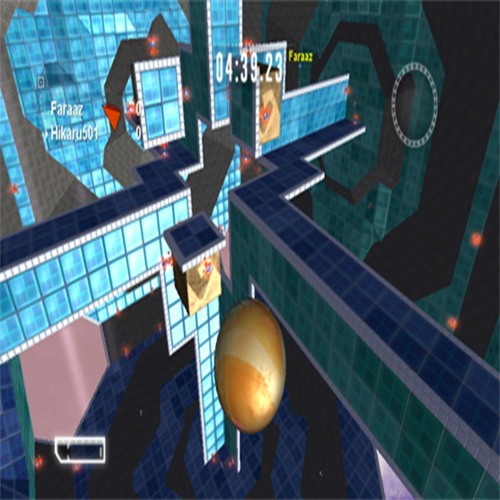
The company created the Microsoft Digital Literacy Program for Windows 8 and an undisclosed project for a World Famous Theme Park.

In 2011, GarageGames began doing game and technology-based service work. The company moved to a new office in Las Vegas, Nevada. On January 20, 2011, the Torque engine and GarageGames brand was purchased and the company was re-launched, as GarageGames again, with new CEO Eric Preisz. On Novemit was announced that IAC was shutting down InstantAction, and the intellectual property for the Torque game engine would be sold off. Shortly after the move, the "GarageGames" brand was retired. The company headquarters were moved to Las Vegas and some employees relocated to Portland, Oregon. InterActive Corporation later bought out the remainder of GarageGames' equity for an undisclosed sum and on July 15, 2009, Louis Castle, notable for his Command & Conquer series, would become the CEO of GarageGames and InstantAction. In 2007, Barry Diller and InterActive Corporation (NASD: IACI) acquired a majority interest in GarageGames for an estimated $80–100M in cash and renamed the company InstantAction. In 2006, GarageGames acquired BraveTree Technologies, developers of Think Tanks and real-time networked multiplayer physics technology. Over its history, the company launched several of its own games, including Marble Blast Ultra for Microsoft Windows and Xbox Live Arcade. In 2006, its developer community surpassed 100,000 users. In 2005, the company introduced Enterprise licenses for large companies and educational institutions available for annual fees ranging from tens of thousands to hundreds of thousands of dollars per year. Later the company expanded its product lines with additional tools, and more advanced engines and introduced tiered licensing. It was used to create the Tribes game series and was released at an initial price point to allow independent game developers access.

In 2001, GarageGames released the Torque game engine. The stated goal of the original founders of GarageGames was to offer licensing of game engines to virtually anyone, allowing independent game-makers more options in developing and publishing video games. Working in their garage on severance checks, the founders derived the name GarageGames as a play off the term " garage band", and is meant to evoke a similar attitude in game development. GarageGames was founded in Eugene, Oregon in 2000 by Jeff Tunnell, Tim Gift, Rick Overman, and Mark Frohnmayer.


 0 kommentar(er)
0 kommentar(er)
